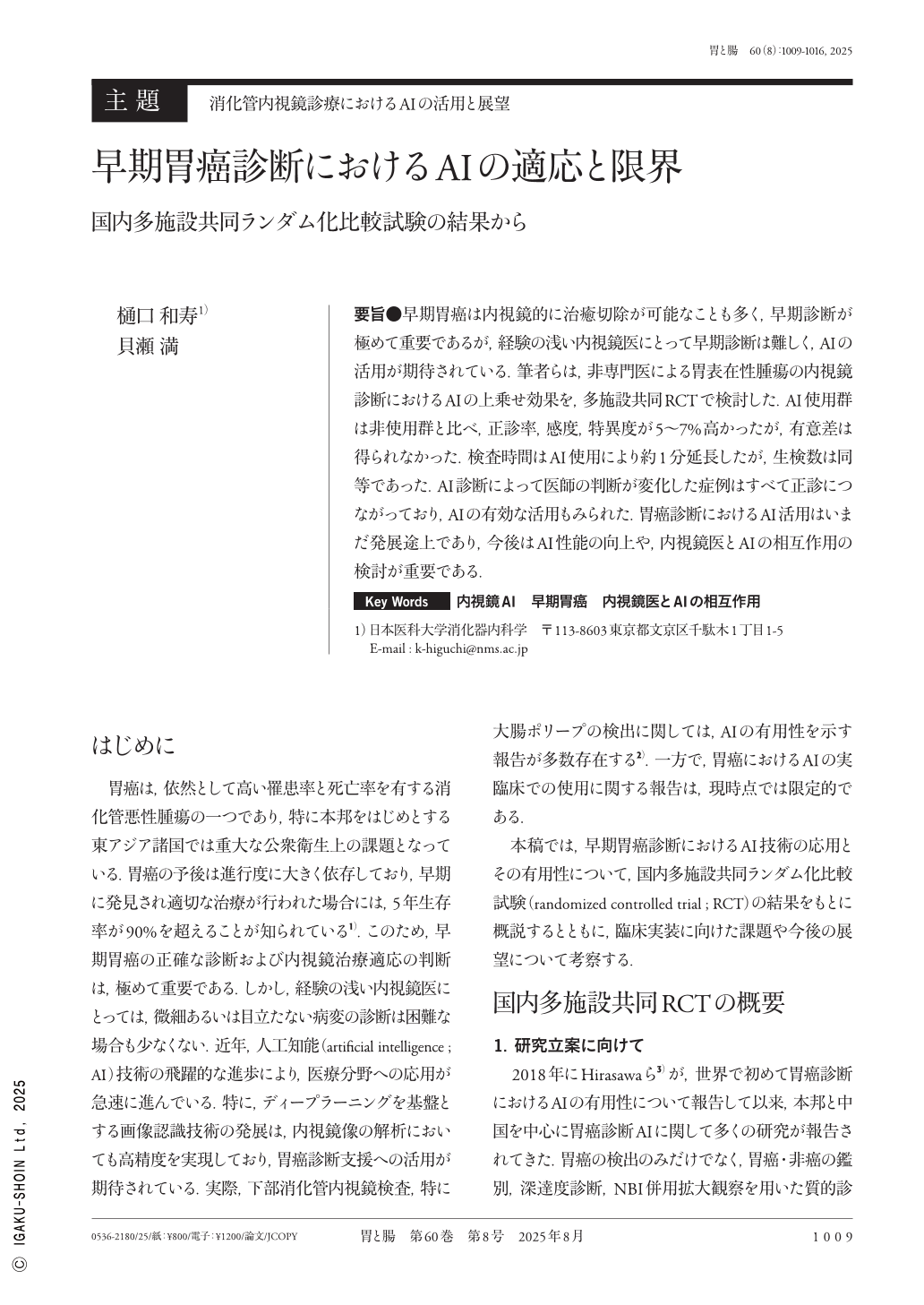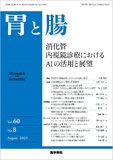Japanese
English
- 有料閲覧
- Abstract 文献概要
- 1ページ目 Look Inside
- 参考文献 Reference
要旨●早期胃癌は内視鏡的に治癒切除が可能なことも多く,早期診断が極めて重要であるが,経験の浅い内視鏡医にとって早期診断は難しく,AIの活用が期待されている.筆者らは,非専門医による胃表在性腫瘍の内視鏡診断におけるAIの上乗せ効果を,多施設共同RCTで検討した.AI使用群は非使用群と比べ,正診率,感度,特異度が5〜7%高かったが,有意差は得られなかった.検査時間はAI使用により約1分延長したが,生検数は同等であった.AI診断によって医師の判断が変化した症例はすべて正診につながっており,AIの有効な活用もみられた.胃癌診断におけるAI活用はいまだ発展途上であり,今後はAI性能の向上や,内視鏡医とAIの相互作用の検討が重要である.
Early gastric cancer is often amenable to curative endoscopic resection, highlighting the importance of early detection. However, early diagnosis remains a challenge for less experienced endoscopists, and artificial intelligence(AI)has been proposed as a potential solution. We conducted a multicenter randomized controlled trial to evaluate the additive effect of AI on the endoscopic diagnosis of superficial gastric neoplasms by nonexpert endoscopists. Compared with the non-AI group, the AI-assisted group showed 5%-7% higher accuracy, sensitivity, and specificity ; however, these differences were not statistically significant. AI use prolonged the examination by approximately one minute, while the number of biopsies did not differ significantly between the groups. In all cases where the endoscopist's diagnosis was changed by AI, the final diagnosis was correct, suggesting that AI can support effective clinical decision-making. While the application of AI in gastric cancer diagnosis is still rudimentary, further enhancement of AI performance and investigation of human-AI interactions will be essential in the future.

Copyright © 2025, Igaku-Shoin Ltd. All rights reserved.


